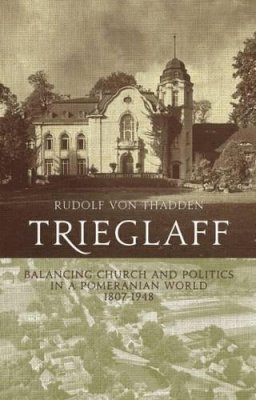
Trieglaff: Balancing Church and Politics in a Pomeranian World, 1807-1948
Rudolf Von Thadden
Through the lens of five generations of Thaddens, this book tells the history of Trieglaff, the village and family estate located in what is now western Poland, from Napoleon’s occupation in 1807 to the Red Army’s invasion in 1945 and until the departure of the last Thaddens in 1948. At the center of this history of Trieglaff society, economy, politics, and culture is the von Thadden family, notably, Adolph Ferdinand von Thadden, the head of the pietistic revival in Pomerania, and Reinold von Thadden-Trieglaff, the founder of the German Protestant Kirchentag. It intertwines family history with the political history of Germany through its description of Otto von Bismarck’s close associations with Trieglaff in the 19th century and its deliberation of the execution of Elisabeth von Thadden, arising out of her resistance to the Nazis, in the 20th century. The source material is richly supplemented by family records kept by “Trieglaffers” in America and from correspondence between Pomerania and America. The book examines the lives of individuals as well as socio-economic and cultural structures, depicting the dynamic changes that the village experienced throughout some 150 years of German and European history; it might be called world history in microcosm. As juxtaposition of formal history and remembered history, it is a serious scholarly source as well as an engaging read.
Product Details
About Rudolf Von Thadden
Reviews for Trieglaff: Balancing Church and Politics in a Pomeranian World, 1807-1948
